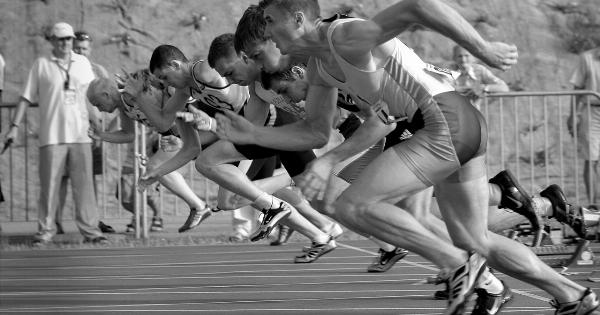Running is a physically demanding activity that requires the body to exert a significant amount of energy. As a result, runners need to pay close attention to their nutrition in order to support their training and optimize their performance.
One key nutrient that is often overlooked but plays a crucial role for runners is magnesium.
The Importance of Magnesium for Runners
Magnesium is an essential mineral that is involved in numerous bodily functions. It contributes to the formation of ATP (adenosine triphosphate), which is the primary source of energy for our cells.
This means that magnesium is directly responsible for providing the energy needed during running.
Furthermore, magnesium helps to regulate muscle contractions and relaxation, making it vital for preventing cramps and muscle spasms. When runners experience muscle tightness or cramping, it may be a sign of magnesium deficiency.
Magnesium and Energy Production
ATP, the energy currency of our cells, is produced in the mitochondria through a process called cellular respiration. Magnesium is a cofactor for many of the enzymes involved in this process, making it essential for energy production.
During running, the demand for ATP increases as the muscles require more energy to contract and propel the body forward.
Without adequate levels of magnesium, the body may struggle to produce ATP efficiently, leading to decreased energy levels and fatigue.
Magnesium also helps to regulate the metabolism of carbohydrates and fats, which are the primary sources of fuel for runners. It aids in the breakdown and utilization of these macronutrients, ensuring that they are effectively converted into energy.
Preventing Muscle Cramps and Spasms
One of the most common issues faced by runners is muscle cramping. These painful contractions can disrupt training sessions and even lead to injuries.
Magnesium plays a crucial role in muscle contractions and relaxation, helping to prevent cramps and spasms.
During exercise, the muscles undergo intense contractions, and the balance of electrolytes such as magnesium becomes critical. Magnesium works alongside other electrolytes, such as calcium and potassium, to maintain proper muscle function.
Without enough magnesium, the muscles may become overly sensitive and prone to cramping.
Additionally, magnesium is involved in the production of melatonin, a hormone that helps regulate sleep. Sufficient sleep is vital for muscle recovery and optimal performance.
Insufficient magnesium levels can disrupt sleep patterns, leading to poorer recovery and potentially increasing the risk of muscle cramps.
Supporting Bone Health
While running is an excellent exercise for cardiovascular fitness, it places significant stress on the bones. Regular running can put runners at a higher risk of stress fractures and bone injuries.
Magnesium plays a crucial role in maintaining strong and healthy bones.
Magnesium aids in the absorption and metabolism of calcium, another essential mineral for bone health. Without sufficient magnesium, the body may struggle to utilize calcium effectively, leading to weakened bones and an increased risk of injuries.
Furthermore, magnesium helps to regulate vitamin D levels in the body. Vitamin D is necessary for calcium absorption, and its deficiency can further impair bone health.
By ensuring adequate magnesium intake, runners can optimize their vitamin D metabolism and support bone strength.
Reducing Inflammation and Muscle Soreness
Intense exercise, such as running, can result in inflammation and muscle soreness. These symptoms can impede recovery and hinder future training sessions.
Magnesium possesses anti-inflammatory properties, which can help reduce exercise-induced inflammation.
Studies have shown that magnesium supplementation can decrease inflammatory markers in the body, such as C-reactive protein (CRP) and interleukin-6 (IL-6).
By reducing inflammation, magnesium may aid in the recovery process and alleviate muscle soreness, allowing runners to bounce back faster.
Sources of Magnesium
Now that we understand the importance of magnesium for runners, it’s crucial to know where to obtain this essential mineral. Luckily, magnesium can be found in a variety of food sources, including:.
- Dark leafy green vegetables such as spinach, kale, and Swiss chard
- Nuts and seeds, particularly almonds, cashews, and pumpkin seeds
- Legumes like black beans, chickpeas, and lentils
- Whole grains such as brown rice, quinoa, and oats
- Fatty fish like salmon and mackerel
In addition to dietary sources, magnesium supplements are also available for individuals who may struggle to meet their daily magnesium needs through food alone.
However, it’s essential to consult with a healthcare professional before starting any supplementation regimen.
Conclusion
Magnesium is a vital mineral for runners as it contributes to energy production, muscle function, bone health, and inflammation reduction.
By ensuring adequate magnesium intake through dietary sources or supplementation, runners can optimize their performance, prevent muscle cramps, support bone strength, and aid in post-exercise recovery. Make magnesium a priority in your nutrition plan to reap the benefits for your running journey.































